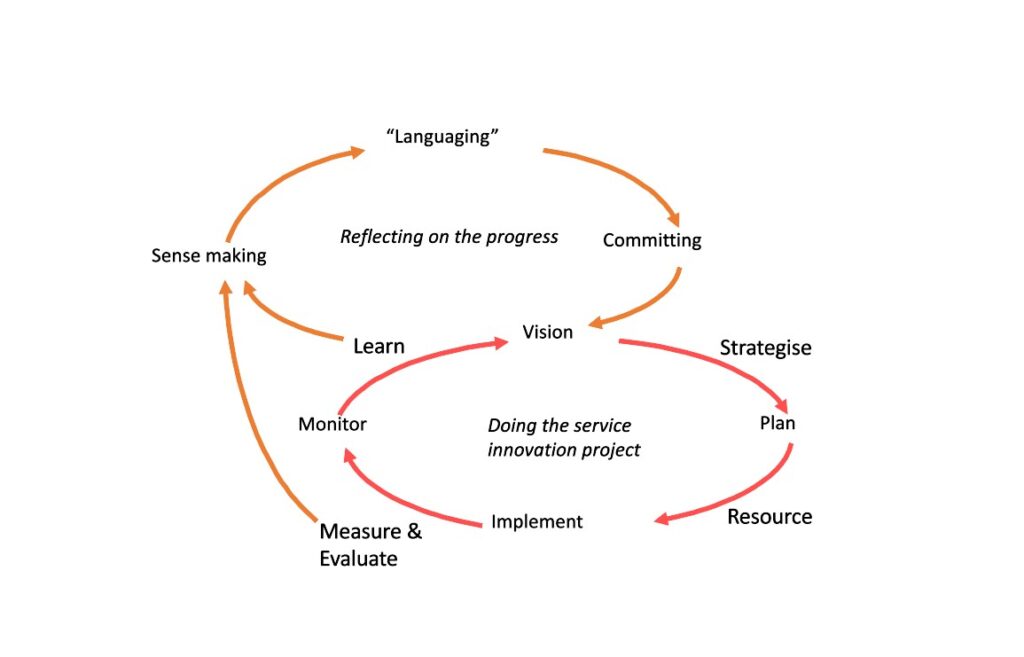Insights from Living Labs
Living labs are environments that can support public open innovation processes (Gascó-Hernández, 2017).
Emerging evidence suggests that the web-based tool COSMOS (Jameson et al, 2020; Martin et al, 2019), refined from Living Lab methodology through experiences with the CoSIE pilots, is able to scaffold stakeholders’ reflection on the wide range of social, ethical, moral, organisational and technical challenges of co-creation across different service environments. The Living Lab in Cosmos digital environment may and has been used to support mutual engagement, facilitate reflective discussions/deliberation about the intentions with intervention (strategizing); resources and ethics needed to support co-creation (resourcing), co-creation value and impact (evaluating), and learning based on variety of evidence sources including experiential knowledge (learning). All this is achieved by using a variety of visualisation and animation tools. The aim is to achieve a shared understanding of the aims, values, roles and relationships in designing, initiating, implementing and improving a particular service from a relational and co-creative perspective.
In CoSIE, Living Labs were aimed at facilitating the co-creating of a shared model of the stakeholder and user roles and relationships that surround the components of the studied piloting service – its design or re-design/improvement. It helped to co-create and visualise the change logic model in pilots based on:
- analysing roles and responsibilities;
- identifying information and knowledge needs and governance requirements;
- designing new or improved service processes and pathways and considering how they may be composed and distributed;
- capacity planning and deployment; and
- financial analysis
Comparative LLs sessions with other pilots, based on comparing and contrasting, have increased the awareness of the specifics and commonalities in the logic (theory) of change in each piloting case. All this helps to adjust the governance of service innovations and improvements.
Living Lab requires tools that help to reflect and learn about the relational aspects of the service and co-creation in early strategising, resourcing, evaluating and for the purposes of learning and governance. In strategising, for example, conversations about service may be facilitated using a perspective of user and looking at “user journey” throughout the service cycle as and asking associated questions, either in digital format or in face-to-face conversations using pictures/boundary objects to evoke reflective questions. Here for example user lived experiences derived from some or several of tools such as “community reporting”, focus groups, open data or social media may serve to stimulate conversations about the meaningfulness and value of service in both early strategising phase and in later resourcing and evaluation phases.
The aim of LL is to evoke conversations and reflective, critical sensemaking about service that allows new insights and perhaps effects new way of imagining and talking (“languaging”) about what is possible and doable and reconsidering intentions, ethics, roles and even abilities. This leads to a progress in commitment and governance.

Immerse yourself